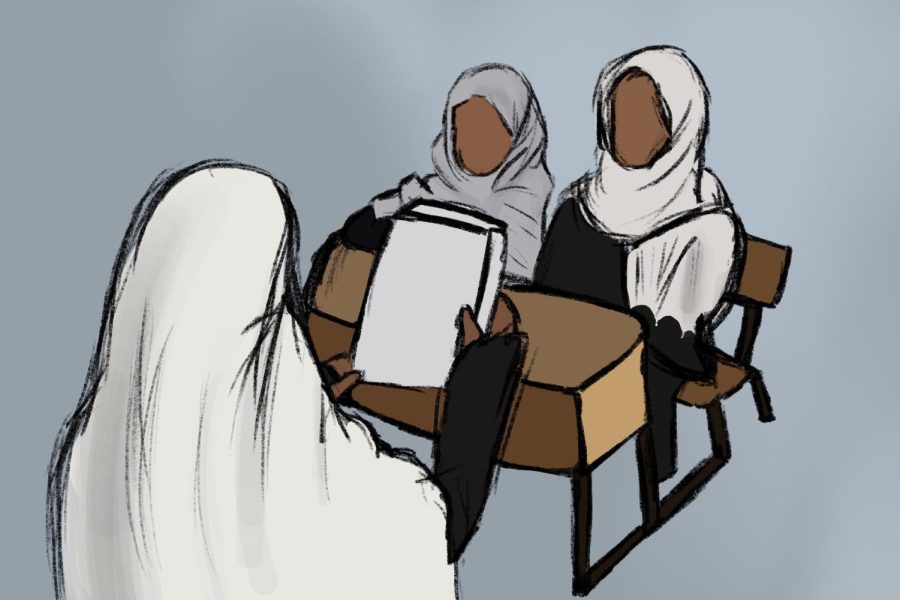Afghan Girls are currently banned from school
How ARHS can help
Girls in Afghanistan are banned from receiving education above sixth grade because of fundamental Islamic religious practice, according to the Taliban.
June 27, 2022
As of right now, girls and young women in Afghanistan are still being banned from school by the Taliban. Is there anything that the ARHS community can do to help them?
Taliban authorities announced that female students, aged 12 to 19, would be allowed to attend school. However, on their first day of school, March 23, they were met with armed Taliban guards blocking them from entering the gates. Currently, girls above sixth grade are banned from receiving a further education because of fundamental Islamic religious practice, according to the Taliban.
The Taliban stated that they wanted to ensure that older girls, aged 12 to 19, were being separated from boys so that schools could emphasize Islamic principles. Despite this statement, the ban was put in place on March 23, 2022.
If girls are educated, they can provide for themselves independently and gain more job prospects in the future. Women all over the world are responding to the Taliban through civil protests. Hundreds of Afghan girls protested in the streets against these rules that the Taliban is enforcing even though they knew the consequences of speaking out in the Taliban regime. This then prompted global protests. However, wide scale protests are not the only way to get involved in this movement. There are opportunities for ARHS students and community members to get involved and help in the ways that they can.
We should have peaceful demonstrations to raise awareness about this issue as well as urging our politicians to do more. Send letters to Senator Elizabeth Warren and Governor Charlie Baker urging them to send aid to Afghanistan women and girls and to fund some girls schools to spread the message that the United States doesn’t agree with the Taliban. With more voices speaking out, the more action will come. In addition, if you can, donate to charitable organizations that will help Afghan girls and women such as Women for Afghan Women.
Students wanting to get involved in this movement can work with community members to hold demonstrations and fundraisers. Some local organizations that students can contact are Ansaar and Refugee and Immigrants’ Assistance Center.
Malala Yousafzai, a Pakastani activist for female education, had a lot to say on her Instagram story regarding the Afghanistan education crisis: “I am asking leaders around the world to take collective action to hold the Taliban accountable for violating the human rights of millions of women and girls.”
The world must continue their efforts to get Afghan girls back into the classroom because ultimately, when girls become educated, countries become prosperous. United Government officials could do more to help these girls as this is a very timely issue for Afghan girls. They could be making a larger effort to spread awareness about this issue and to give aid to Afghanistan.
Selvi Oyola is one of the current advisers for “A World of Difference” program at Algonquin brought by the Anti Defamation League, and has strong opinions when it comes to the current situation in Afghanistan. In addition, she is aware and knowledgeable of the current situation in Afghanistan regarding the ban of educating girls.
“I think we have to educate girls for humanity and to make sure that communities in our world are a better place,” Oyola said. “We’re all links of a chain and we can’t afford to have a weak chain. Girls’ education impacts both health and economy. It is needed for the stability of the world.”
To stay informed about this issue, stay tuned to the news, donate money to charitable organizations helping Afghanistan women and girls and follow the hashtag “let afghan girls learn” on Instagram to learn more.
The world must hold the Taliban accountable.











